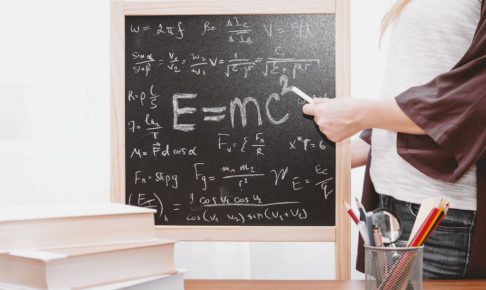英語
高校生
3枚目の問いの答えを教えてください。
よろしくお願い致します。
Radio Host:
durlar aind
Roger Ali:
Radio Host:
Roger Ali:
Radio Host:
Roger Ali:
Radio Host:
Roger Ali:
Roger Ali:
Radio Host:
Roger Ali:
Radio Host:
Welcome back. As I mentioned before the break, Roger Ali is with us today to talk about
artificial intelligence. Thank you for being here, Dr. Ali.
Thank you for having me.
I'll be honest with you. When I hear the words "artificial intelligence," the first thing I
think of is the character HAL from the movie 2001: A Space Odyssey.
ch tud goons bad
Radio Host:ome In other words, the search engine draws conclusions about what we're looking for on the
Internet.
Roger Ali:
Sure. Many people remember HAL. In the movie, he's the computer that controls the
systems of a spacecraft. He also speaks with the people on the spacecraft.
And he's not very happy when the people decide to turn off the computer. In the movie,
HAL becomes very dangerous.
That's right, but fortunately, artificial intelligence in the real world isn't like HAL.
Well, that's good! Can you tell us what is happening in the field of AI?
Many interesting things. For example, when we search for something on the Internet,
the search results that we see are chosen carefully. The search engine has learned which
websites are the most popular, the most reliable, and so on. This prevents us from seeing
a lot of websites we're not really interested in.
Tosa
Right, so it only shows us the information it thinks we want to see, which includes go
advertisements as well. We usually see only ads for products that the computer thinks we
might want to buy.
You said, "It thinks," but is the search engine really thinking?
IST That depends on your definition of thinking. The search engine is capable of
learning machine learning-and it does have knowledge. Knowledge about the Internet.
Are learning and knowledge part of your definition of thinking?
They're part of it, but human beings are capable of so much more. We have our
senses hearing, smell, sight, touch, taste-and our emotions. We notice a lot about the
world, and we use our judgment to make decisions.
That's true, and most computer scientists know that we can't replace human beings with
computers. We don't intend to make robots for every kind of job, either. That's just not
practical.
Radio Host:
Roger Ali:
Radio Host:
Roger Ali:
Radio Host:
Roger Ali:
Radio Host:
Roger Ali:
Radio Host:
Roger Ali:
shlegs
deoll oibus
OK, but there are some jobs that robots can do.
Yes, there are. I should probably explain this a little better. When we want a robot to do
something, we need to instruct the robot in great detail. We enter information about what
the robot is supposed to do in any situation. If we give the robot a command, or if it finds
itself in certain circumstances, it knows exactly what to do, because we told it what to do!
That doesn't sound like a very intelligent machine.
It's not, but the latest idea behind machine learning, or artificial intelligence, is that
machines might someday act more like the human brain. We're trying to go beyond the
idea of telling the machine everything. We want the machine to be able to learn and to
tell us something new.
That sounds interesting, but what are machines going to tell us that we don't already
know?
#0000
decrcb
We're not sure, but we hope that AI can be used in the medical field. Since computers can
read a lot of information very quickly, they might be able to discover things that people
don't have time to discover. If we think about cancer, for example, it's a problem for doctors
because it's really many diseases-not just one disease. In addition, millions of people have
had cancer, but doctors can't possibly know the facts about every one of those people.
But a computer could read all of that information and possibly see something that a
human doctor couldn't see?
That's our hope, but we're not there yet. an
201
It's something for us to look forward to. Our guest today has been Roger Ali. Dr. Ali,
thanks very much for joining us.
It was my pleasure.
se odier jud "alido al bine NOY
To golfersib zog no sheqeb ind
svada ob ti bas-goimesl acidowm-gaimsel
Yanidaid to moitidal woy to sing nybelwoud ban gainel av A
sam doing us to sidryno one eyaind scord and Jiyo ring or ved T
um breitent,donot dgis Hanes mied-ama
anolabab odam or invanha o seu gw bos blow
dare goiad named coalgus yma w 202 word steltavina seturqos team baaout) a bed T
Jun out 'edT celle du to band soll todo en oi brani ob Westumoo
Jenitourg
80H olbal
ILA xeso
SeoB diba
C1.12 Listen again. Take notes on the one or two details you think are the most
important for each main idea. Use abbreviations.
1. Main idea: Artificial intelligence limits Internet search engine results.
2. Main idea: Search engines are capable of a kind of thinking.
3. Main idea: Intelligent computers could help in the medical field, for example with cancer.
NOTE TA
回答
まだ回答がありません。
疑問は解決しましたか?
この質問を見ている人は
こちらの質問も見ています😉
おすすめノート
総合英語be まとめ(1)
14192
162
【英単】たった14語で14000語を理解できるようになる語
14068
18
【総合英語フォレスト】まとめ(4)分詞/比較
9629
155
最強の英単語覚え方!
7594
62













